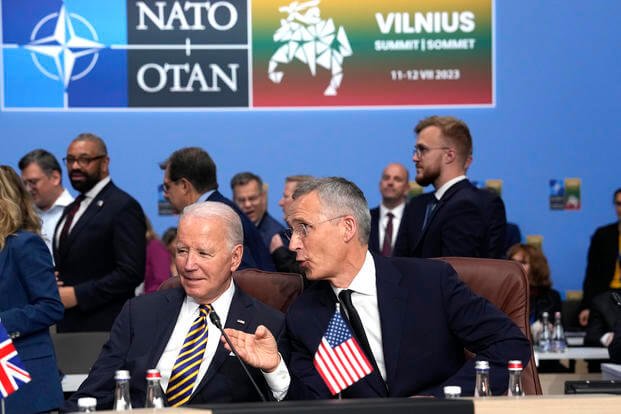
Washington — A high-ranking official of the U.S. Department of Defense experienced symptoms similar to those of the so-called Havana syndrome at the NATO summit in Vilnius last year, a DoD spokeswoman said Monday.
"I can confirm that a senior DoD official experienced symptoms similar to those reported in anomalous health incidents," Pentagon spokeswoman Sabrina Singh told journalists in Washington when asked about a news report regarding the case.
"This person was there at the — at the NATO Summit in Vilnius; not part of the secretary's delegation that was also there during that time."
At the end of 2016, a number of employees at the U.S. embassy in Havana and their families started complaining of symptoms including headaches, hearing loss, dizziness and nausea. The symptoms have become known as the Havana syndrome or anomalous health incidents (AHIs).
Similar complaints were also reported elsewhere in the world. Those affected have stated that the symptoms appeared after hearing a strange noise or feeling strong pressure in their head.
The U.S. government initially did not rule out the possibility that the symptoms could have been some kind of attack.
Just over a year ago, an official report cited five of seven U.S. intelligence agencies as saying that it was "very unlikely" that the a "foreign adversary" was responsible for the cases, after reviewing more than 1,500 "anomalous health incidents."
Instead, the reported complaints were probably the result of preexisting conditions, other illnesses or environmental factors, the unclassified report said.
On Monday, journalists from German magazine Der Spiegel, together with colleagues from CBS's "60 Minutes" and magazine The Insider, published a report citing a U.S. military investigator as saying that the Russian secret service could be behind the Havana syndrome.
Der Spiegel also quotes a person affected who claims that the first cases of the syndrome emerged as early as 2014 at the U.S. consulate in Frankfurt. CBS also mentioned the case in Vilnius in its report.
The U.S. State Department said it did not wish to confirm or comment on the reports. It had provided extensive compensation and support to affected employees with the help of the Havana Act.
Singh said the 2023 intelligence report was still valid.
U.S. Defense Secretary Lloyd Austin "has confidence in the intelligence community, and they're continuing to do their assessment," Singh said. "The investigation is ongoing, so obviously not going to speak more to that at this — at this time."
©2024 dpa GmbH.
Distributed by Tribune Content Agency, LLC.[1]
© Copyright 2024 dpa. All rights reserved. This material may not be published, broadcast, rewritten or redistributed.